Reach Out to Us!
1 minute read
Have you ever walked into your home and spotted a damp ceiling or heard the drip-drip of a hidden leak? Maybe your carpet felt soggy, or that strange musty smell just wouldn’t go away. You start to wonder where all this water is coming from, and how you can stop it before it gets worse.
Water damage doesn’t always start with a flood. Sometimes it begins with a small leak, a clogged gutter, or an unnoticed crack. But if ignored, it can lead to mold, costly repairs, and even damage your home’s foundation.
That’s where preventing water damage comes in, taking small, smart steps before trouble starts.
At Homerun Restoration, we know how stressful unexpected leaks can be. That’s why we help homeowners find problems early and fix them fast. With the right home water damage prevention plan, you can protect your home, save money, and enjoy peace of mind knowing your house is safe and dry.
In this Homeowner’s Guide to Preventing Water Damage Before It Starts, you’ll learn how to spot early warning signs, protect key areas of your home, and keep water out — for good.
Why Home Water Damage Prevention Is So Important
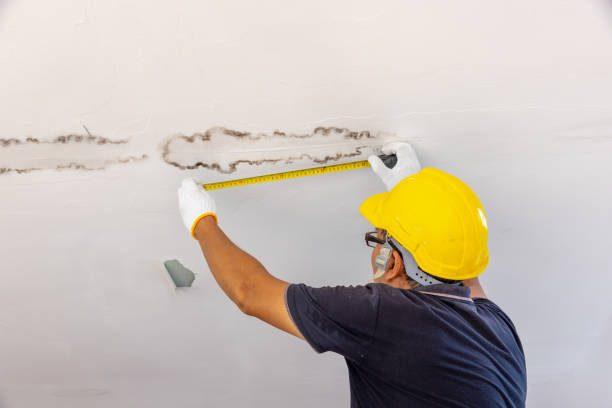
Water is useful, but when it goes where it shouldn’t, it becomes a problem. Home water damage prevention saves your home from mold, cracks, and high repair costs. Think of it like keeping your car maintained—you don’t wait for it to break down before changing the oil. The same goes for your home.
If you want peace of mind and a safe house, you need a water damage prevention guide that covers your plumbing, roof, basement, and even your appliances.
How to Prevent Water Damage in Your Home
You might be wondering, “How do I prevent water damage in my home?” The answer starts with regular checks. Every month or season, look at areas where water flows, leaks, or drains. Here’s what every smart homeowner should do:
- Check pipes for leaks.
- Keep gutters clean.
- Test your sump pump.
- Watch for signs of dampness or musty smells.
These simple home water damage prevention tips can stop major problems before they start.
Preventing Pipe Bursts and Plumbing Leaks
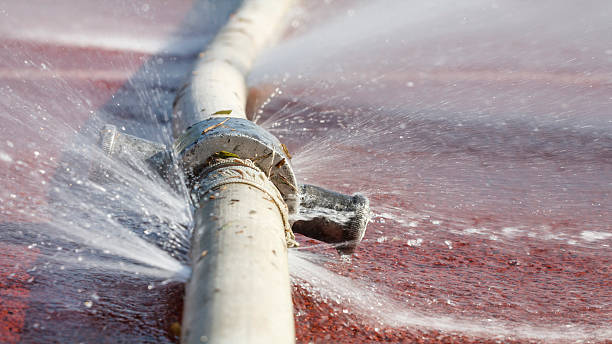
How to Stop Pipes from Bursting in Winter
When the temperature drops, the water inside your pipes can freeze and expand. This causes the pipe to burst—just like when a soda can explodes in the freezer. To prevent this, insulate pipes for winter in your basement, attic, and crawl spaces. You can buy foam pipe sleeves from a hardware store and easily wrap them yourself.
Know Your Main Water Shut-Off Valve
Every homeowner should know where the main water shut-off valve is. If a pipe bursts, turning off the valve quickly can stop gallons of water from flooding your home. Mark it clearly so your family can find it fast in an emergency.
Spotting Hidden Leaks Behind Walls
Sometimes, leaks happen quietly. If you notice water stains, bubbling paint, or a soft spot on your wall, you may have a leaky pipe behind wall. You can also use a moisture meter or call Homerun Restoration for an annual plumbing inspection checklist. Fixing small leaks early can save your walls, floors, and wallet.
Appliance and Water Heater Leak Prevention
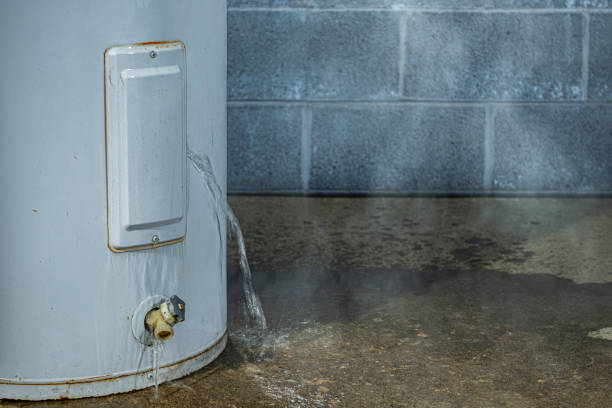
Appliances make life easier, but they can also leak when old or poorly maintained.
Inspect Your Appliances Regularly
Look behind your washing machine, dishwasher, and refrigerator. Make sure hoses and connections are tight and dry. If you see cracks, replace the hoses immediately. Experts recommend washing machine hose replacement every 5 years.
Maintain Your Water Heater
Many homeowners forget their water heater until it starts leaking. Drain it once a year to remove sediment buildup. This extends its life and reduces leak risk. Unsure when to replace? Most last about 8–12 years. These water heater maintenance tips help avoid flooding and costly damage.
At Homerun Restoration, we often see flooded basements because of an old refrigerator water line leak or a neglected dishwasher connection. Regular checks take minutes but can save thousands.
Roof, Gutters, and Basement Waterproofing
Inspect and Clean Gutters
Your gutters and downspouts are the first line of defense against water damage. If they’re clogged, water overflows and seeps into your foundation. Clean them twice a year—once in spring and once in fall.
Check Your Roof for Leaks
Missing shingles, cracked flashing, or dark spots on your ceiling are signs of trouble. Small leaks grow fast, especially after heavy rain. Regularly inspect your roof for water leaks, and if you see damage, contact a roofing professional before it worsens.
Prevent Basement Flooding
Basements are prone to moisture. To prevent basement flooding from rain, make sure your yard slopes away from your home. You can also seal foundation cracks and check window and door caulk to keep water outside where it belongs.
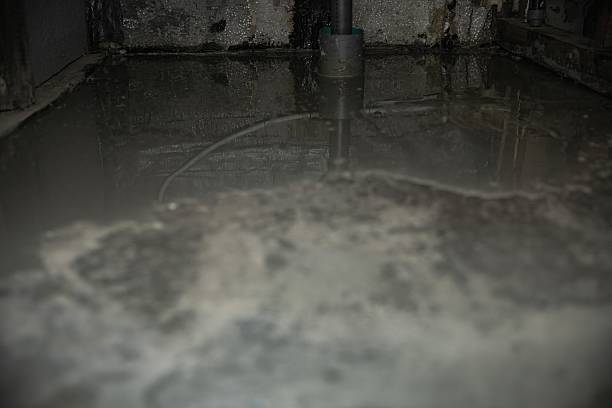
Sump Pump and Basement Flood Control
Your sump pump is like your home’s secret hero—it moves water away before it becomes a problem.
How to Test and Maintain Your Sump Pump
Pour a bucket of water into your sump pit. The pump should turn on automatically and drain the water fast. If it doesn’t, clean it or replace it. Regular sump pump maintenance keeps your basement dry.
Add Backup Systems
Power outages during storms are common. Installing a secondary sump pump with battery backup or a backwater valve for sewer backup adds an extra layer of safety. Using a dehumidifier for basement moisture control also keeps the air dry and prevents mold.
Smart Home Water Leak Detection Systems
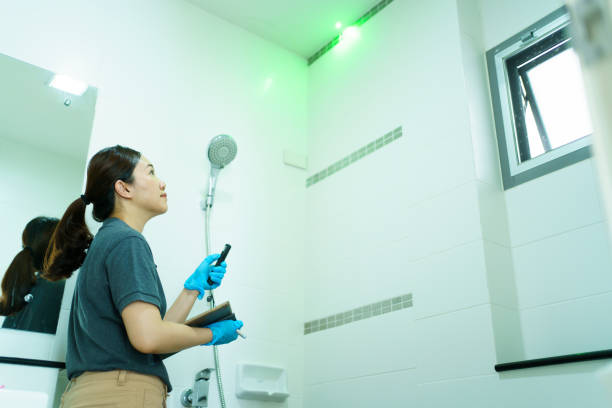
Today’s technology makes home water damage prevention easier than ever.
Install Smart Leak Detectors
You can place smart leak sensors near sinks, washing machines, and water heaters. If they detect water, they send an alert to your phone. Some systems even include automatic water shut-off valves that stop leaks instantly. Look for trusted whole-house water monitoring systems with good reviews.
At Homerun Restoration, we recommend combining freeze sensors for pipes with leak detectors. They protect your home when you’re away or during cold weather.
Preventing Water Damage When Away from Home
Before You Go on Vacation
Planning a trip? Always shut off the water main for vacation. This prevents surprise leaks while you’re gone. Also, set your thermostat to keep your pipes warm—around 55°F in winter. Never turn off the heat completely.
If you’re gone for a long time, prepare your house for long-term vacancy by draining outdoor hoses, checking pipe insulation, and asking a neighbor to check in occasionally.
When you return, check for any signs of leaks or dampness before turning everything back on.
Water Damage Prevention Checklist for Homeowners
Here’s a quick recap to help you stay on track:
- Inspect pipes, faucets, and toilets often.
- Clean gutters and check your roof twice a year.
- Maintain appliances and replace old hoses.
- Test your sump pump regularly.
- Install leak detectors for early warnings.
- Always know where your shut-off valve is.
If you follow these steps, you can reduce the risk of water damage at home and enjoy peace of mind all year long.

When to Call the Professionals
Sometimes, despite all your care, water finds a way in. If you notice musty smells, wet walls, or standing water, it’s time to call experts like Homerun Restoration. We specialize in home water damage prevention and repair, helping homeowners act fast before damage spreads.
Our team inspects, repairs, and offers maintenance plans that keep your home protected from future issues. Don’t wait for water to surprise you—get ahead of it today.
FAQs
What are the most common causes of water damage in homes?
Leaky roofs, broken pipes, clogged gutters, and old appliances are the main causes. Regular checks can prevent most of these problems.
How often should I inspect my home for leaks?
Check your home at least once every season, and always after heavy rain or freezing weather.
Can I prevent basement flooding without a sump pump?
You can reduce the risk by grading soil away from your home, sealing cracks, and keeping gutters clean, but a sump pump adds vital protection.
What should I do if I find a water leak?
Turn off your main water supply right away. Dry the area and call a professional like Homerun Restoration to assess and fix the leak.
Are smart leak detectors worth it?
Yes! They give instant alerts before small leaks turn into major floods, especially useful when you’re away from home.